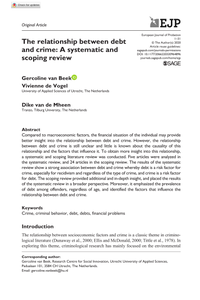Illicit data markets have emerged on Telegram, a popular online instant messaging application, bringing together thousands of users worldwide in an unregulated exchange of sensitive data. These markets operate through vendors who offer enormous quantities of such data, from personally identifiable information to financial data, while potential customers bid for these valuable assets. This study describes how Telegram data markets operate and discusses what interventions could be used to disrupt them. Using crime script analysis, we observed 16 Telegram meeting places encompassing public and private channels and groups. We obtained information about how the different meeting places function, what are their inside rules, and what tactics are employed by users to advertise and trade data. Based on the crime script, we suggest four feasible situational crime prevention measures to help disrupt these markets. These include taking down the marketplaces, reporting them, spamming and flooding techniques, and using warning banners. This is a post-peer-review, pre-copyedit version of an article published in Trends in organized crime . The final authenticated version is available online at https://doi.org/10.1007/s12117-024-09532-6
DOCUMENT
Compared to macroeconomic factors, the financial situation of the individual may provide better insight into the relationship between debt and crime. However, the relationship between debt and crime is still unclear and little is known about the causality of this relationship and the factors that influence it. To obtain more insight into this relationship, a systematic and scoping literature review was conducted. Five articles were analyzed in the systematic review, and 24 articles in the scoping review. The results of the systematic review show a strong association between debt and crime whereby debt is a risk factor for crime, especially for recidivism and regardless of the type of crime, and crime is a risk factor for debt. The scoping review provided additional and in-depth insight, and placed the results of the systematic review in a broader perspective. Moreover, it emphasized the prevalence of debt among offenders, regardless of age, and identified the factors that influence the relationship between debt and crime.
DOCUMENT

‘The fear of crime’ is “upon everybody’s tongue” nowadays (Farrall & Gadd 2004:1). The concept is widely accepted as social problem across the globe (Gray, Jackson & Farrall 2008, Garland 2001) as it is held to impinge ‘(…) upon the well-being of a large proportion of the population’ (Farralll et al. 1997:658). But do we actually have a valid picture of a genuine ‘social problem of striking dimensions’ (Ditton 1999:83)? Critical voices say we don’t. ‘The fear of crime’ - as we generally know it - is seen by them as ‘(…) a product of the way it has been researched rather than the way it is’ (Farrall et al. 1997:658). And still, 45 years after the start of research, ‘surprisingly little can be said conclusively about the fear of crime‘ (Ditton & Farrall 2000:xxi). This research contributes to a growing body of knowledge - from especially the last fifteen years - that treats ‘the fear of crime’ as ‘(…) a complex allocation of interacting feelings, perceptions, emotions, values and judgments on the personal as well as the societal level’ (Pleysier 2010:43). One often replicated and paradoxical observation catches the eye: citizens perceive a growing threat of crime to their society, but consequently perceive a low risk that they themselves will fall victim of crime. Taking a social psychological approach (e.g. see Farrall et al. 2000; Jackson 2008), we will search for suitable explanations for this paradoxical observation in the fear of crime’s research tradition. The aim of this research is ‘to integrate social psychological concepts related to the individual’s identity and evaluation of his position in an increasingly complex society, to enhance our understanding of the fear of crime concept’ (Pleysier & Cops 2016:3).
MULTIFILE
